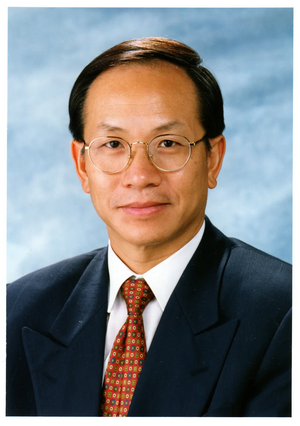Post-script on Taiwan

One Country, Two Systems was conceived by Deng Xiaoping, architect of China's Open Door Policy, as a formula not only for Hong Kong's reversion to China's sovereignty but also for Taiwan's ultimate unification with the mainland.
Under a so-called "1992 Consensus" reached between Beijing and the Kuomintang (KMT), both mainland China and Taiwan agreed to uphold the "One China" principle subject to different interpretations.
The vast majority of Taiwan people are born and bred in Taiwan with a strong Taiwanese identity. They are increasingly resistant to being subsumed under One China under the CCP. This resistance markedly increased in the wake of recent mass anti-Beijing protests in Hong Kong, handing a historic landslide January 2020 re-election victory to President Tsai Ing-wen and her Democratic Progressive Party (DPP).
The DPP has long been ambivalent towards the 1992 Consensus. After Tsai's victory, the KMT has to follow suit for political survival.
Thanks to much closer economic and supply chain integration, about one million Taiwanese voters live and work on the mainland. While there is no mileage for unification, most Taiwanese do not want to provoke Beijing into military action by formal declaration of independence, bearing in mind Beijing's Anti-Succession Law enacted in 2005 against Taiwan's separatism.
In tune with Beijing's growing economic and geopolitical clout, more and more countries around the world have abandoned their recognition of Taiwan as a sovereign entity, reducing the total number still recognizing Taiwan to only 14 tiny nations.
Against any precipitous actions by Beijing, the United States has been doubling down on protecting Taiwan under the Taiwan Relations Act 1979. Without formally abandoning America's long-supported "One China Policy", a Taipei Act was passed by Congress in March 2020. This expands the scope of US relations with Taiwan and encourages other nations and international organizations to strengthen official and unofficial relations with Taiwan.
In the eyes of Beijing, both Taiwan and the United States appear to be trying to achieve de facto independence by stealth. Under President Xi Jinping's China Dream, Taiwan's eventual unification cannot be allowed to recede indefinitely. In recent official statements, the word "peaceful" was omitted in Beijing's references to unification.
Apparently, added to Beijing's calculations is Taiwan's TSMC (Taiwan Semiconductor Manufacture Company). It is the world's pre-dominant manufacturer supplying cutting-edge high-end chips (under 5 nanometers) to the likes of Huawei, China's global information and communications technology (ICT) giant. The mainland's lack of high-end semi-conductor manufacturing capacity is a technological Achilles Heel. This has been taken advantage of by the United States through anti-Huawei sanctions, forbidding TSMC from supplying China with these much-needed semiconductor chips essential for 5G, artificial intelligence and other cutting-edge technologies.
With increasing American and Chinese naval and air force manoeuvres over the Taiwan Strait, The Economist recently described Taiwan as "the most dangerous place on earth".
Thanks to superpower politics, any open hot conflict over Taiwan risks igniting a security spiral that could spin out of control, with unintended catastrophes for the region, if not the entire world.
In a post-Summit statement (20 June, 2021), the G7 appealed for peace and stability across the Taiwan Strait, calling for peaceful resolution of the Taiwan question.
Clearly One Country Two Systems doesn't have any appeal to the Taiwanese people. Perhaps from day one, it never had. If a peaceful solution is eventually realized, it would take Beijing decades or more to show that the formula really works in Hong Kong and that over time, mainland China has successfully become a benign "strong, democratic, civilized, harmonious, and modern socialist country" as stated in its second centenary goal (by 2050) for the China Dream.
The author is an independent China strategist based in Hong Kong. Contact: andrewkpleung@gmail.com
